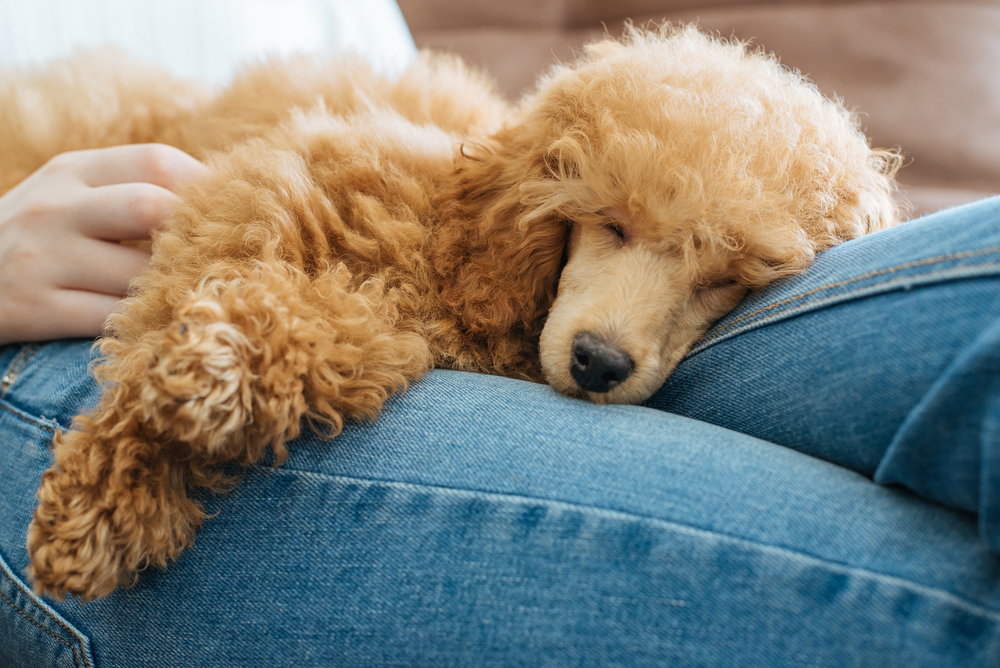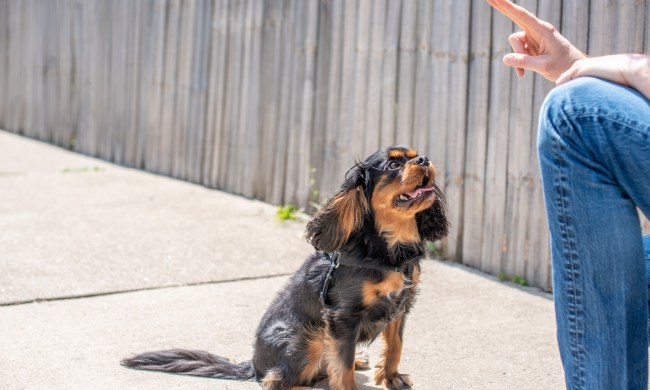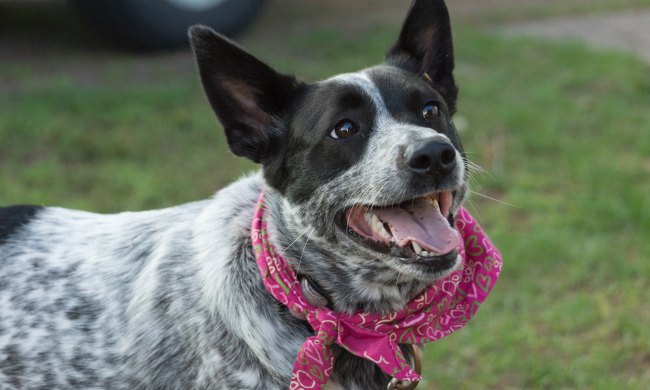When you’re a dog parent, there’s almost nothing as rewarding as watching your dog have fun. And because we humans don’t speak the same language as our canine friends, it’s also satisfying when they show you how happy they are to see you after your long day at work by leaping into your arms and smothering you with kisses.
But there’s a difference between a loving, happy dog and an over-excited dog. Excessive jumping, barking, chasing, or leash pulling isn’t cute; rather, it’s unbalanced, unhealthy behavior that needs to be addressed.
If your dog is overexcitable, try these strategies.

Determine the trigger
One of the best ways to calm an excitable dog is to not let him get so excited in the first place. Take a few minutes to observe your dog — what sets him in motion? It might be seeing his leash in your hand, when the doorbell rings, or the anticipation of dinner. Once you know the trigger, you can determine the best way to change his unruly behavior.
Calm yourself first
You might think you’re doing the right thing when you shout to get your dog’s attention, but it actually has the opposite effect. Your already excited pooch senses your heightened energy and reacts to it with even more excitement and crazy behavior. Your best bet is to stop and take a deep breath, then use a calm, firm voice when you speak to him.
Don’t reward wild behavior
While it can be fun to see your dog spin in circles at the sight of his favorite toy (or person), it’s important to recognize it as excitable behavior that will only get worse if it’s encouraged. As difficult as it may be, your best bet is not to engage while he’s in such a frenzied state. Firmly tell your dog “no,” then turn your back, fold your arms, and ignore him until he settles down. Reward him with your attention once he’s calm.
Get plenty of exercise
Many excitable dogs are simply bored and, left unchecked, that boredom can actually turn into aggressive behavior toward you as well as the other dogs in your family. If your dog attacks one of your other family dogs when excited, there’s a reason for it. Experts say once a dog is excited, it can trigger their predatory drive and lead to attacking the closest thing to them.
If you don’t already have an exercise routine, consult with your veterinarian to determine the kind and duration of exercise that is appropriate for your dog’s breed, age, and health. A tired dog is usually a good dog, and given the alarming statistics on canine obesity, the recommended amount of exercise can keep him healthier, too.
This means mental stimulation as well. Look for ways you can challenge your dog’s brain, either with puzzle toys or by walking him on a new trail full of unfamiliar sights, sounds, and smells.

Spend more time together
Whether you decide to train your dog by yourself or enlist professional help, investing in obedience training is a good way to teach your dog acceptable behavior as well as strengthen the bond between you. Resolve to spend at least 30 minutes to an hour of active playtime each day with your dog, in addition to a few minutes of interaction several other times during the day.
Use positive reinforcement
Chances are, your dog isn’t bouncing off the walls every minute all the time. Do your best to notice when he’s calm so you can reward that behavior with affection and words of affirmation. If you can get into the habit of giving him the attention he craves when he’s calm while ignoring his behavior when he’s wild, he’ll soon understand how to conduct himself properly to get the response from you that he desires.
Be consistent
Once you’ve determined how to address your dog’s excitable behavior, be consistent. And if there are other family members involved in the issue, make sure they know the protocol so that your dog doesn’t become confused about what you expect him to do.
Above all, be patient. If your dog is the excitable type, it probably didn’t happen overnight and, without question, you will have to exercise an abundance of patience to turn things around. There will be days when you don’t feel like putting in the effort or that your dog simply isn’t getting any better. Don’t give up!
Keep this in mind: A calm dog is a happy dog. When your pup has the right amount of physical and mental exercise as well as calm, consistent direction from you and the rest of his human family, he has a lot less reason to live in an overly excitable state of mind.


